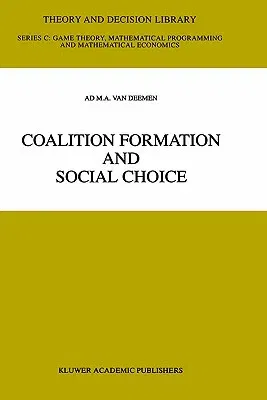Ad M a Van Deemen
(Author)Coalition Formation and Social Choice (1997)Hardcover - 1997, 31 October 1997

Qty
1
Turbo
Ships in 2 - 3 days
In Stock
Free Delivery
Cash on Delivery
15 Days
Free Returns
Secure Checkout

Part of Series
Theory and Decision Library C
Part of Series
Theory and Decision Library
Part of Series
Edmund Husserl Collected Works
Part of Series
Theory and Decision Library U
Part of Series
Theory and Decision Library Series C: Game Theory, Mathematical Programming & Operations Research
Print Length
244 pages
Language
English
Publisher
Springer
Date Published
31 Oct 1997
ISBN-10
0792347501
ISBN-13
9780792347507
Description
Product Details
Author:
Book Edition:
1997
Book Format:
Hardcover
Country of Origin:
US
Date Published:
31 October 1997
Dimensions:
23.39 x
15.6 x
1.6 cm
ISBN-10:
0792347501
ISBN-13:
9780792347507
Language:
English
Location:
New York, NY
Pages:
244
Publisher:
Series:
Weight:
539.77 gm